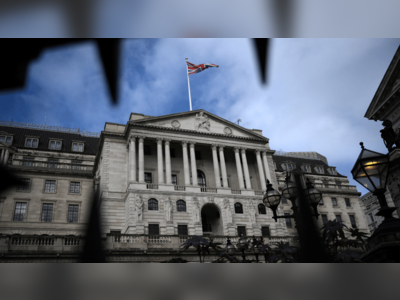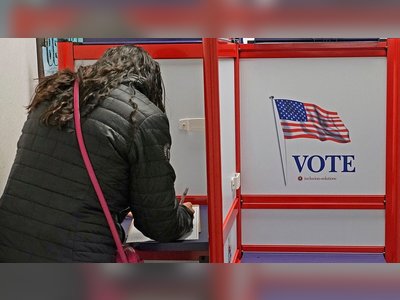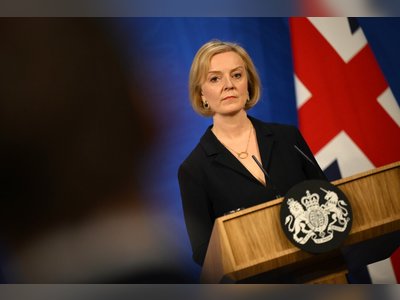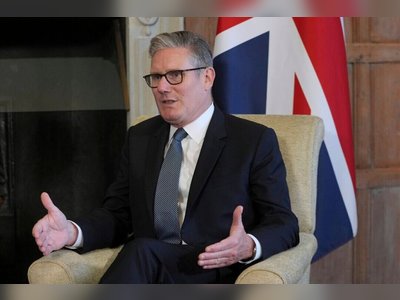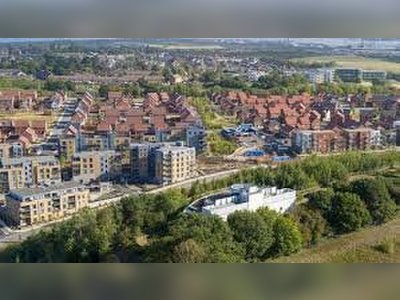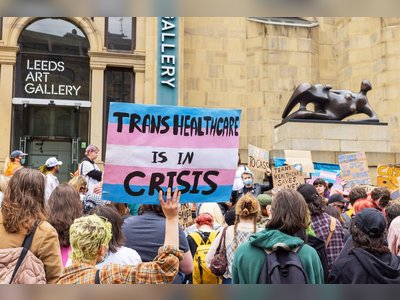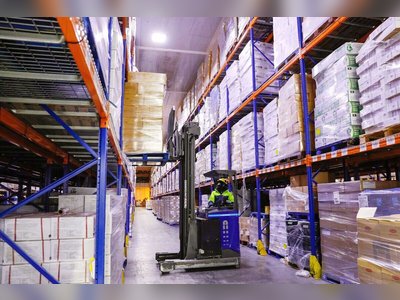Saudi Arabia Emerges as Global Tech Magnet with U.S. Backing and Trump’s Visit
With deep pockets, long-term tax breaks, and full foreign ownership rights, Saudi Arabia aligns its Vision 2030 goals with global tech giants and AI development, strengthened by a strategic partnership with the United States
Saudi Arabia has strategically leveraged the visit of former U.S. President Donald Trump to accelerate its ambitions of becoming a global hub for technology and artificial intelligence.
The visit coincided with new announcements and initiatives that align with the Kingdom’s Vision 2030 — a national strategy to diversify the economy beyond oil and foster innovation-driven growth.
As part of this vision, Saudi Arabia aims for the technology sector to contribute at least five percent of its GDP by 2030. By the end of 2024, tech already accounted for 4.1 percent, reflecting the impact of significant investments across infrastructure, education, and partnerships with global firms.
Crown Prince Mohammed bin Salman launched Humain, a new Saudi AI company backed by the Public Investment Fund (PIF), just days before Trump’s arrival in Riyadh.
Humain is tasked with building high-capacity data centers totaling nearly two gigawatts by 2030. It also aims to develop Arabic-language AI models to strengthen regional digital sovereignty and deliver cloud and AI solutions for strategic sectors like energy, healthcare, finance, and manufacturing.
The PIF, with assets valued at nine hundred twenty-five billion dollars, provides Humain with strong financial backing, enabling its role in multi-billion-dollar projects.
Alongside infrastructure, Saudi Arabia is investing heavily in human capital, training thousands of AI and tech professionals, launching new research centers, and offering attractive compensation packages to global experts.
A major pillar of this strategy is the National Center for Artificial Intelligence, part of the Saudi Data and Artificial Intelligence Authority (SDAIA).
The center focuses on applied research, solution development, and capacity building in data science and AI.
To attract foreign technology firms, Saudi Arabia has introduced a range of incentives, including a twenty-year tax exemption, full foreign ownership in many sectors, and removal of the local partnership requirement.
Companies that establish regional headquarters in the Kingdom gain exclusive access to government contracts and PIF-backed opportunities.
In early 2025, Saudi Arabia announced a streamlined investment law designed to reduce bureaucracy and offer eligibility-based incentives to global firms.
Special economic zones focused on cloud computing and information technology have also been established, such as the dedicated zone at King Abdulaziz City for Science and Technology (KACST) in Riyadh.
A centerpiece of Saudi Arabia’s tech transformation is the Neom project — a futuristic city envisioned as a global hub for robotics, AI, and green technology.
Despite delays due to funding challenges, the project continues to advance.
In February, Neom signed a five-billion-dollar deal with Saudi tech firm DataVolt to build a next-generation AI data center in the Oxagon region, set to go live by 2028.
The Neom Investment Fund (NIF) also recently invested in U.S.-based MemryX, a company specializing in Edge AI processors.
This partnership aims to develop energy-efficient AI accelerators for Neom’s digital infrastructure, illustrating the mutual economic benefits of Saudi-U.S. cooperation.
A joint Saudi-American statement released during Trump’s visit emphasized the strength of the strategic economic partnership, highlighting total deal values approaching six hundred billion dollars.
A significant portion of these agreements, valued in the tens of billions, is allocated to the technology sector — both for investments in the U.S. and within the Kingdom.
The alignment of Saudi Arabia’s long-term tech goals with American innovation and capital has positioned the Kingdom as an increasingly attractive destination for global tech companies, with substantial U.S. participation helping to drive its momentum forward.
The visit coincided with new announcements and initiatives that align with the Kingdom’s Vision 2030 — a national strategy to diversify the economy beyond oil and foster innovation-driven growth.
As part of this vision, Saudi Arabia aims for the technology sector to contribute at least five percent of its GDP by 2030. By the end of 2024, tech already accounted for 4.1 percent, reflecting the impact of significant investments across infrastructure, education, and partnerships with global firms.
Crown Prince Mohammed bin Salman launched Humain, a new Saudi AI company backed by the Public Investment Fund (PIF), just days before Trump’s arrival in Riyadh.
Humain is tasked with building high-capacity data centers totaling nearly two gigawatts by 2030. It also aims to develop Arabic-language AI models to strengthen regional digital sovereignty and deliver cloud and AI solutions for strategic sectors like energy, healthcare, finance, and manufacturing.
The PIF, with assets valued at nine hundred twenty-five billion dollars, provides Humain with strong financial backing, enabling its role in multi-billion-dollar projects.
Alongside infrastructure, Saudi Arabia is investing heavily in human capital, training thousands of AI and tech professionals, launching new research centers, and offering attractive compensation packages to global experts.
A major pillar of this strategy is the National Center for Artificial Intelligence, part of the Saudi Data and Artificial Intelligence Authority (SDAIA).
The center focuses on applied research, solution development, and capacity building in data science and AI.
To attract foreign technology firms, Saudi Arabia has introduced a range of incentives, including a twenty-year tax exemption, full foreign ownership in many sectors, and removal of the local partnership requirement.
Companies that establish regional headquarters in the Kingdom gain exclusive access to government contracts and PIF-backed opportunities.
In early 2025, Saudi Arabia announced a streamlined investment law designed to reduce bureaucracy and offer eligibility-based incentives to global firms.
Special economic zones focused on cloud computing and information technology have also been established, such as the dedicated zone at King Abdulaziz City for Science and Technology (KACST) in Riyadh.
A centerpiece of Saudi Arabia’s tech transformation is the Neom project — a futuristic city envisioned as a global hub for robotics, AI, and green technology.
Despite delays due to funding challenges, the project continues to advance.
In February, Neom signed a five-billion-dollar deal with Saudi tech firm DataVolt to build a next-generation AI data center in the Oxagon region, set to go live by 2028.
The Neom Investment Fund (NIF) also recently invested in U.S.-based MemryX, a company specializing in Edge AI processors.
This partnership aims to develop energy-efficient AI accelerators for Neom’s digital infrastructure, illustrating the mutual economic benefits of Saudi-U.S. cooperation.
A joint Saudi-American statement released during Trump’s visit emphasized the strength of the strategic economic partnership, highlighting total deal values approaching six hundred billion dollars.
A significant portion of these agreements, valued in the tens of billions, is allocated to the technology sector — both for investments in the U.S. and within the Kingdom.
The alignment of Saudi Arabia’s long-term tech goals with American innovation and capital has positioned the Kingdom as an increasingly attractive destination for global tech companies, with substantial U.S. participation helping to drive its momentum forward.
